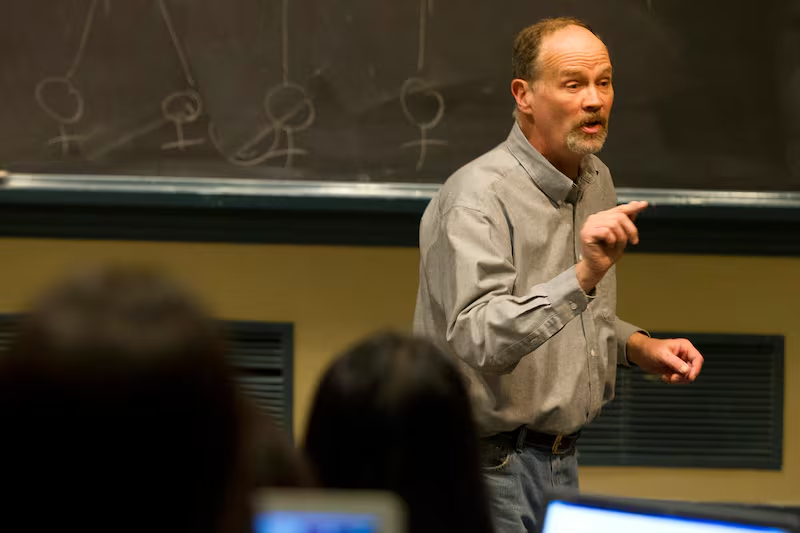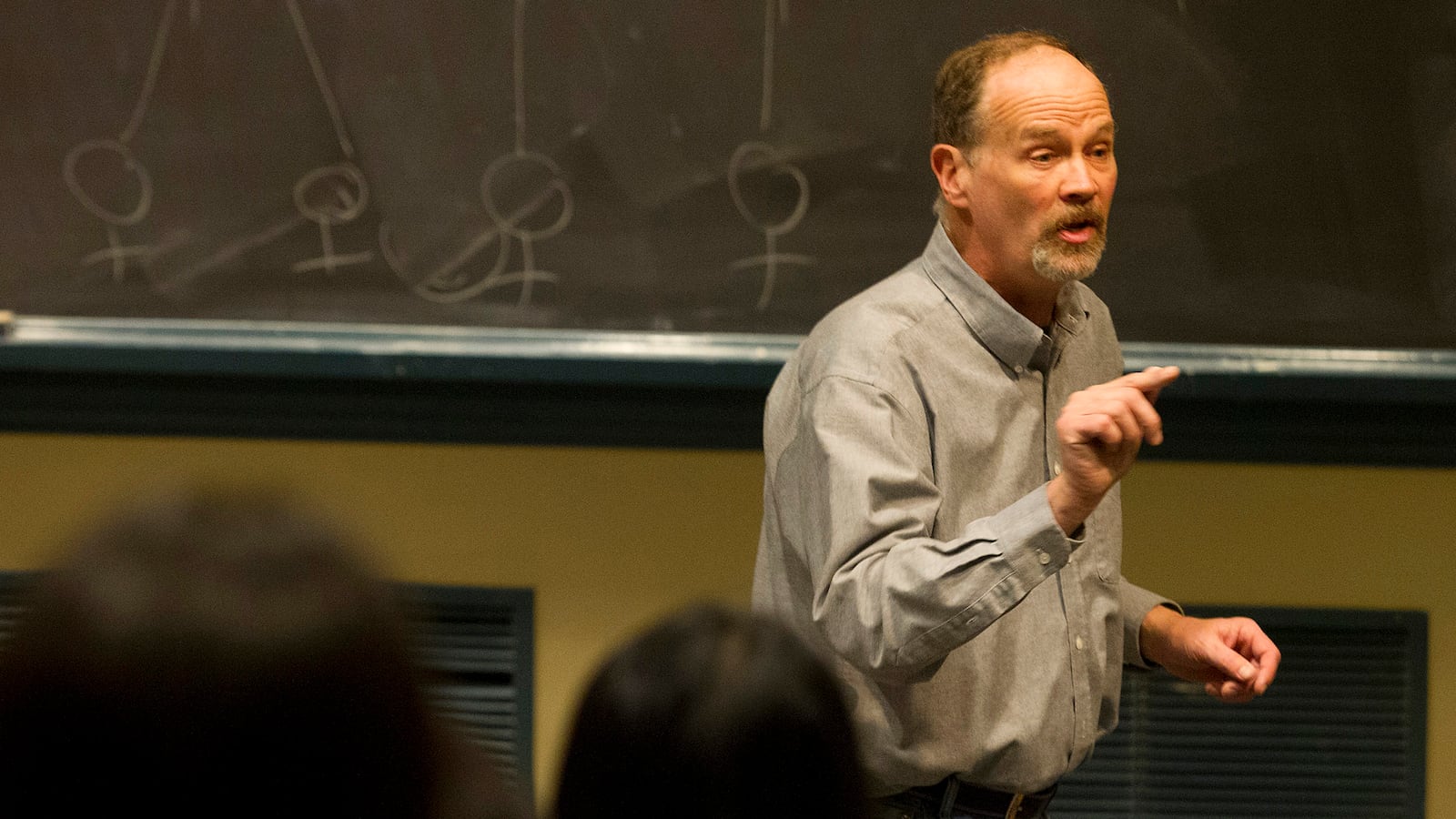Brown University biologist Kenneth Miller, one of America’s leading advocates for evolution, has just received one of America’s oldest and most prestigious awards—from the Roman Catholic Church.

At commencement on May 18, the University of Notre Dame will honor Miller with the 2014 Laetare Medal, an award given annually to a Catholic “whose genius has ennobled the arts and sciences, illustrated the ideals of the Church and enriched the heritage of humanity.” The award was first given in 1883 and previous recipients include former President John F. Kennedy, and West Wing’s popular acting president Martin Sheen.
Many consider Miller a paradoxical figure who occupies the thinly populated no-man’s land between science and religion, embracing both with enthusiasm and finding no conflict. He is a life-long practicing Catholic and accepts church teachings on salvation, the virgin birth and resurrection of Jesus. He described himself in the PBS “Evolution” series as simply a “traditional” Catholic, one who has not had to abandon or distort his beliefs to accommodate his other passion: evolutionary biology. Notre Dame president Fr. John Jenkins describes Miller as an “incisive witness both to scientific acumen and religious belief.”
Consistent with most Catholic believers, and supported by official statements over the years from the Vatican, Miller embraces mainstream science with enthusiasm, accepting that the world is God’s creation. “I see the Creator’s plan and purpose fulfilled in our universe,” he wrote in a personal reflection about evolution. Miller sees the earth “bursting with evolutionary possibilities,” and understands God to be continuously creating with providentially ordered “design to life.” But—and here the salvos begin to be launched from conservative anti-evolutionists—he says “the name of the design is evolution.” Ken Ham’s Answers in Genesis says Miller “appears to be blind” in his support for evolution, and unable to “distinguish between science and religious indoctrination.” The Discovery Institute has literally dozens of articles attacking Miller accusing him of everything from shoddy scholarship to duplicity.
Miller has few peers when it comes to helping people understand evolution. He is the co-author of two of the most widely used biology textbooks in the country—one each for high school and college students. When creationists try to remove evolution from public schools, Miller’s text is often the target. He has written, spoken, and even testified in court on behalf of evolution when it has been under assault. He testified in the Dover trial in 2005, and was instrumental in keeping “Intelligent Design” out of the local schools there. His Finding Darwin’s God: A Scientist’s Search from Common Ground Between God and Evolution provides his personal view of how Christians can understand evolution. In Only a Theory: Evolution and the Battle for America’s Soul, he provides a sustained critique of Intelligent Design that has made him Enemy Number One at the Discovery Institute.
Miller’s scathing critiques of Intelligent Design are especially grating, coming from a committed Christian, as it flies in the face of the Institute’s claim that evolution is really just a creation story for atheists.
Despite Miller’s tireless support for evolution—the popularity of his text and popular books make him one of the most influential “teachers” of evolution in America—many of his fellow evolutionists recoil from the old-fashioned religion that sits so comfortably in his soul, seemingly at peace with his science. In a wide-ranging essay in The New Republic, new atheist Jerry Coyne took a joint look at Miller’s Only a Theory and my Saving Darwin that came out about the same time. Coyne had many nice things to say and recommended both of our books. But in an extended examination of our mutual theological confusion, he chose to lump us with the creationists we had so strongly critiqued in our books, concluding—absurdly—that our “sincere but tortuous efforts to find the hand of God in evolution lead [us] to solutions that are barely distinguishable from the creationism that [we] deplore.”
Miller certainly cannot be accused of inserting God’s hand into evolution. He even rejects the label used by many Christian evolutionists—theistic evolution—insisting that “evolution” is simply evolution. He told a popular science and religion blog: “I always reject the term ‘theistic evolutionist.’ I am a theist and an evolutionist, to be sure, but the combined term makes no sense to me. Never heard anyone described as a ‘theistic chemist,’ have you?”
Miller, like most biologists, laments the widespread rejection of evolution in America, with culture warriors dug in on both sides, defending their turf. He told me he believes, on a national level, that there has “a hardening of positions … and I think the Ham-Nye debate actually helped to harden these positions.” His conclusion: “Bummer.”
But, despite his battle scars, Miller has not given up hope. “The most recent poll I saw showed that acceptance of evolution was quite high among people under 30. So perhaps we are making progress.”






